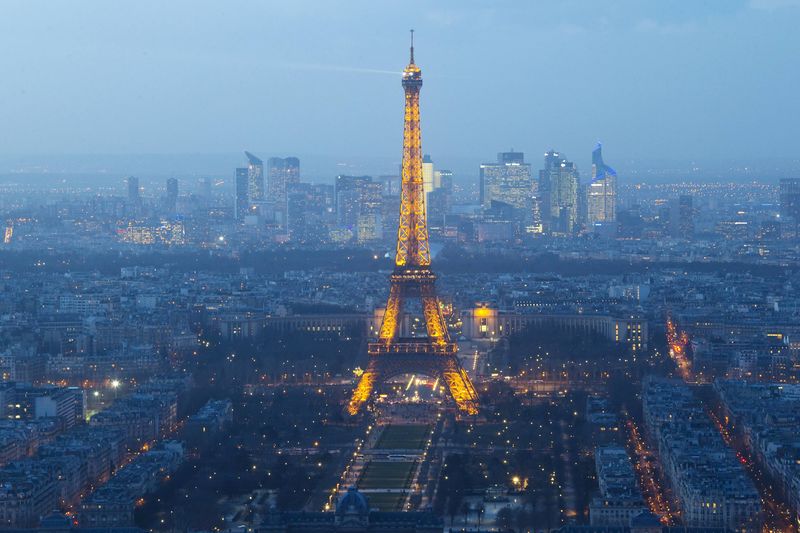By Carolyn Cohn
LONDON (Reuters) - European asset managers Carmignac and Fidelity International will no longer buy Russian securities, they said on Monday, joining a string of fund managers who have made similar announcements since Russia invaded Ukraine.
U.S. value investor Brandes Investment Partners also said it had put a moratorium on deploying new capital to Russian securities.
Asset managers such as BlackRock (NYSE:BLK) and abrdn have already said they are halting purchases of Russian securities or plan to reduce existing holdings as western governments impose tough sanctions on Russia.
But efforts by investors to cut positions have been complicated by a Russian ban on local brokers from selling securities held by foreigners.
"We have decided not to purchase any Russian securities until further notice," Carmignac, which has 42 billion euros ($45.6 billion) of assets under management, said in a statement.
"We are committed to divesting from any remaining Russian securities in our portfolios, considering extra-financial aspects as well as market conditions, in order to preserve the interests of our clients, our primary objective."
The firm's emerging market fund Carmignac Portfolio EM Debt had the world's longest Russia debt position in January at over 43%, industry tracker Morningstar data shows.
Carmignac has already cut its position in Russian debt as well as in shares and the rouble, a spokesperson said.
"Since the end of January, we have adopted a more cautious position and have either reduced our exposures in the wake of the deterioration of the situation and/or implemented some hedging strategies," it said.
Carmignac funds that contain Russian assets have no more than 2% in Russia, the spokesperson added.
Fidelity International said it would not invest in Russia and Belarus "for the foreseeable future" and was looking at ways to cut its existing exposure.
The asset manager said it had been marking down prices of Russian securities in its funds and that where there is no trade, prices could be adjusted to zero.
Vanguard Group also said that it had implemented international sanctions imposed against Russian institutions and is working to further reduce its exposure to Russia.
JPMorgan (NYSE:JPM) said its London-listed global emerging markets income trust had only 0.25% in Russian equities as of March 4, versus 3.6% at the end of January.
Invesco said its exposure to Russia and Ukraine was "very small".
More than $3 billion in unlisted funds exposed to Russia were suspended last week, while several exchange-traded funds (ETFs) were also frozen.
($1 = 0.9206 euros)
